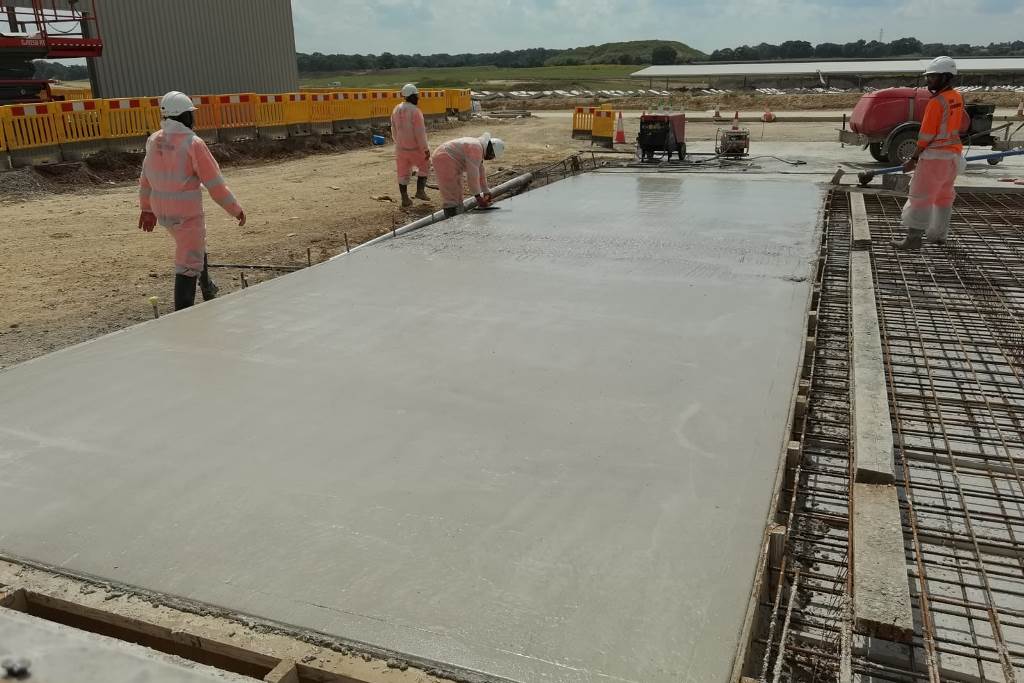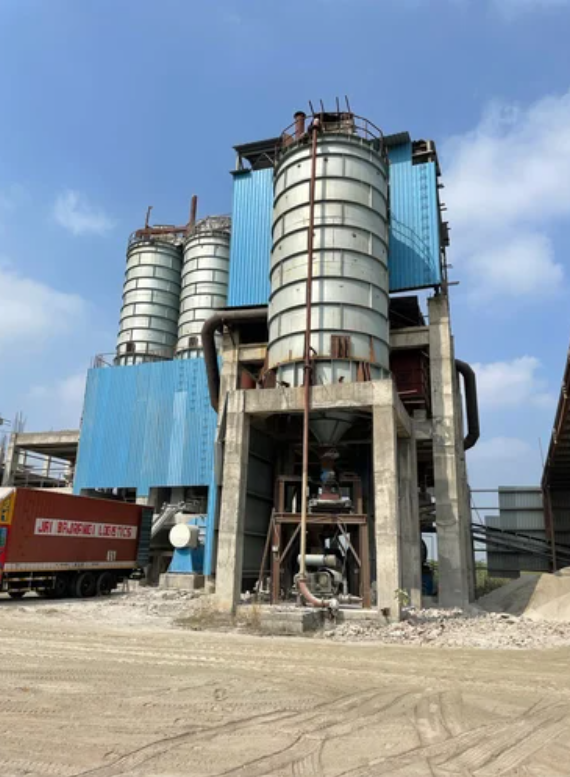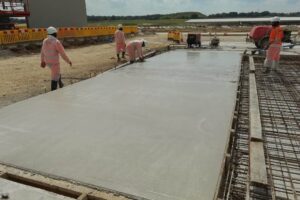



GGBS
Ground Granulated Blast Furnace Slag (GGBS) is a byproduct of iron production in blast furnaces and has chemical properties that make it suitable for use as a supplementary cementitious material. The chemical composition of GGBS typically includes significant proportions of silica (SiO2), alumina (Al2O3), and calcium oxide (CaO), along with smaller amounts of magnesium oxide (MgO), sulfur trioxide (SO3), and other elements. GGBS also contains compounds such as calcium aluminate silicates and calcium sulfide.
The specific chemical properties of GGBS can vary depending on factors such as the source of the raw materials, the manufacturing process, and post-processing treatments. However, its chemical composition generally contributes to its pozzolanic and hydraulic properties, which improve the durability, strength, and workability of concrete when used as a partial replacement for Portland cement.
GGBS



Ground Granulated Blast Furnace Slag (GGBS) is a byproduct of iron production in blast furnaces and has chemical properties that make it suitable for use as a supplementary cementitious material. The chemical composition of GGBS typically includes significant proportions of silica (SiO2), alumina (Al2O3), and calcium oxide (CaO), along with smaller amounts of magnesium oxide (MgO), sulfur trioxide (SO3), and other elements. GGBS also contains compounds such as calcium aluminate silicates and calcium sulfide.
The specific chemical properties of GGBS can vary depending on factors such as the source of the raw materials, the manufacturing process, and post-processing treatments. However, its chemical composition generally contributes to its pozzolanic and hydraulic properties, which improve the durability, strength, and workability of concrete when used as a partial replacement for Portland cement.
Building a Better Future with GGBS
- Concrete production: Enhancing concrete strength and durability with GGBS.
- Road construction: Improving road performance and longevity with GGBS.
- Structural fills: Building stability and sustainability with GGBS-enhanced fills.
- Soil stabilization: Strengthening soils and reducing environmental impact with GGBS.
- Waste stabilization and remediation: Mitigating environmental risks in waste management with GGBS.
- Agriculture: Enhancing soil quality and plant growth with GGBS soil amendments.
- Manufacturing of building materials: Improving building material durability and sustainability with GGBS.
Join the Conversation: Contact Us
- Phone Number : 9978579512
- Email ID : Info@terramineral.in
- Office Address : B 11 Ground, Shalin Square, Lal Gebi Cir, Vinzol, Hathijan, Ahmedabad, Gujarat 382445
